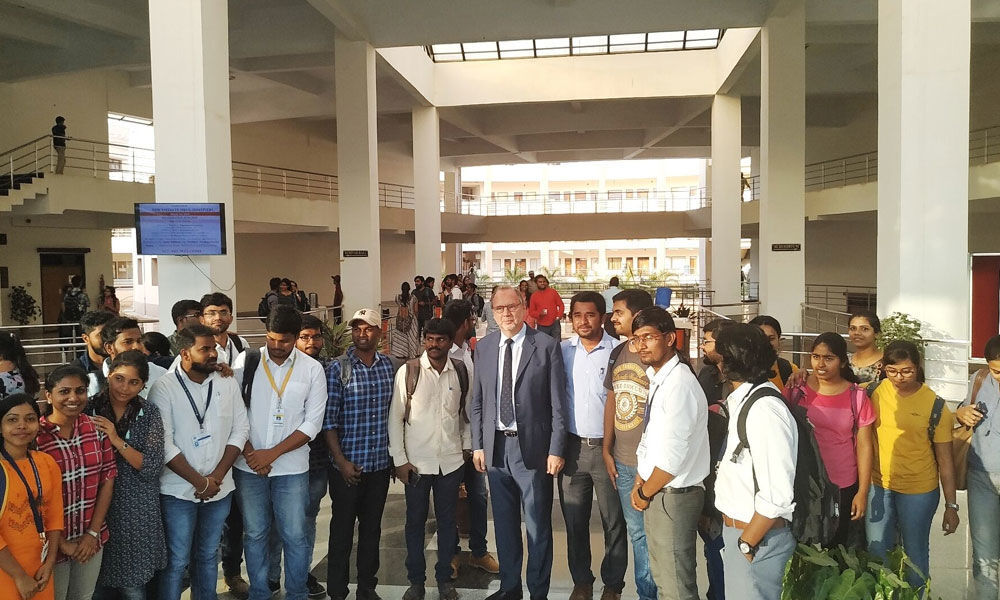UoH organises Hyderabad Lecture Series
 UoH organises Hyderabad Lecture Series
UoH organises Hyderabad Lecture SeriesHyderabad: Reputed Belgian microbiologist who co-discovered the EBOLA virus, Professor Baron Peter Piot delivered a lecture on the topic '100 Years after the Spanish Flu: Are we ready for the Next Epidemic?' on Friday at School of Life Sciences auditorium, University of Hyderabad (UoH), as a part of the Hyderabad Lecture Series, 2019 organised by the University of Hyderabad in association with Insurance Regulatory and Development Authority of India (IRDAI).
This was the fifth lecture of the series organised with an aim to bring very eminent personalities to lecture on topics of wide interest and contemporary issues.Prof Appa Rao Podile, Vice-Chancellor, UoH, welcomed Prof Piot and also welcomed several scientists, faculties and students present at the venue. Dr Subhash C Khuntia, IAS, Chairman of IRDAI and other officials were also present for this lecture.
Prof Piot, the founding executive director of the UNAIDS organisation and now Director of the London School of Hygiene and Tropical Medicine, UK, has been known as a renowned microbiology scientist, a clinician, public health activist and diplomat.
His team discovered the Ebola virus during the epidemic in rain forest in Democratic Republic of Congo in Central Africa in 1976. Piot threw light on history of epidemics and pandemics since Spanish Flu (1918) till date. Ebola, SARS (Severe Acute Respiratory Syndrome), MERS (Middle-Eastern respiratory syndrome), AIDS, Zika virus, Dengue, Chikungunya, Yellow fever, Nipha virus were few examples. He also explained the dynamics of social, economic & political systems and their impact on dealing with these epidemics.
Prediction of epidemics:
Early detection of epidemics will be possible with better surveillance and use of artificial intelligence. According to Prof. Piot, zoonosis (infections transmitted to humans from animals), urbanisation, high density population, international travel, climate change, conflict (humanitarian crisis), deforestation, population growth & increased food demand contribute to the risk of exposure to more & more emerging infections in future.
Preparedness to deal with epidemics:
Early detection of epidemic is crucial in containing the epidemic, for which local capacity and rapid support system to respond to disease outbreaks is to be developed. Measures like infection control in Hospitals, action against overuse of antibiotics and vaccine skepticism should be ensured. Research & development of vaccines should be supported.
Active involvements of governments across globe, non-governmental organizations and international organizations like CEPI (Coalition for Epidemic Preparedness Innovation) have been actively involved in epidemic preparedness measures.

